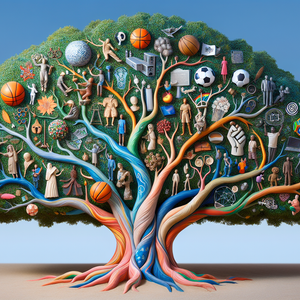The Hidden Wealth of Home Inspectors

One of the most significant advantages of being a home inspector is the potential for multiple income streams. Beyond the standard home inspection, inspectors can offer additional services such as radon testing, mold inspections, and energy audits. According to the American Society of Home Inspectors, inspectors who diversify their service offerings report income boosts ranging from 20% to 30%. For instance, an inspector charging $300 for a standard inspection could earn an additional $100 to $200 by providing specialized testing services. This ability to expand service offerings not only increases earnings but also adds value to the inspector's overall services, making them more appealing to potential clients.
Specialized Certifications
Investing in specialized certifications can significantly enhance a home inspector's credibility and earning potential. Certifications in areas such as infrared thermography, building science, and green building practices can set inspectors apart in a crowded market. For example, certified infrared thermographers can detect hidden moisture issues and energy inefficiencies, which are increasingly important to environmentally conscious buyers. This specialized expertise allows inspectors to charge fees that can be up to 50% higher than their standard inspection rates. Obtaining such certifications not only improves an inspector's skillset but also positions them as an authority in their field, attracting a higher caliber of clientele.
Niche Markets
Home inspectors who strategically focus on niche markets can reap significant financial rewards. For instance, inspectors who specialize in historic homes often command higher fees due to the unique challenges and regulations associated with these properties. Similarly, as the demand for eco-friendly and energy-efficient homes continues to rise, inspectors knowledgeable about sustainable building practices can attract clients who are eager to invest in green technologies. By carving out a niche, inspectors can create a lucrative market for their services, differentiating themselves from generalists and increasing their earning potential.
Leveraging Technology
The integration of technology into home inspections has opened new avenues for income generation. Tools such as drones can be employed for comprehensive roof inspections, providing clients with detailed imagery that traditional methods often miss. Additionally, software tools help streamline reporting processes, enabling inspectors to manage their time more efficiently and take on more clients. By keeping pace with technological advancements, home inspectors can not only enhance the quality of their services but also boost their productivity and, consequently, their earnings.
Building a Strong Reputation
As with any profession, a strong reputation is crucial for sustained success in home inspection. Inspectors who prioritize customer service, thoroughness, and accuracy often benefit from referrals and repeat business, contributing to a stable and growing income. Investing time in marketing efforts, such as creating a professional website and engaging clients on social media, can further enhance visibility and attract new clientele. Positive reviews and testimonials can significantly influence potential clients' decisions, giving inspectors a competitive edge in a crowded market.
The profession of home inspection is rich with hidden wealth that many practitioners may not fully exploit. By embracing diverse income streams, pursuing specialized certifications, tapping into niche markets, leveraging technology, and building a strong professional reputation, home inspectors can significantly elevate their earnings beyond the traditional salary range. This field not only provides invaluable services to homebuyers and sellers but also offers ample opportunities for financial growth and personal fulfillment. For those considering a career in home inspection or looking to expand their existing practice, the potential for increased income is not just a possibility; it is an attainable reality.
Radon Measurement Technician
Environmental consulting firms, home inspection companies, public health departments
Responsibilities
Conduct radon testing in residential properties to assess indoor air quality.
Educate clients on radon mitigation methods and health risks associated with elevated radon levels.
Skills Required
Knowledge of radon measurement protocols.
Experience with testing equipment.
Strong communication abilities.
Mold Inspector
Mold remediation companies, environmental consulting firms, insurance agencies
Responsibilities
Perform thorough inspections to identify mold growth and moisture issues in residential and commercial properties.
Collect samples for laboratory analysis and provide comprehensive reports with remediation recommendations.
Skills Required
Knowledge of mold remediation standards.
Experience in environmental health.
Certifications such as the Indoor Air Quality Association (IAQA) certification.
Energy Auditor
Energy efficiency consulting firms, utility companies, government agencies
Responsibilities
Evaluate homes for energy efficiency, identifying areas of improvement to reduce energy consumption and costs.
Provide homeowners with actionable recommendations based on assessments, including insulation improvements and HVAC system upgrades.
Skills Required
Expertise in energy modeling software.
Knowledge of building science.
Certifications like the Residential Energy Services Network (RESNET) HERS Rater.
Infrared Thermographer
Home inspection firms, building maintenance companies, energy efficiency organizations
Responsibilities
Use infrared technology to detect thermal anomalies in buildings, such as moisture intrusion, air leaks, and insulation deficiencies.
Generate detailed reports and provide clients with visual evidence to support findings.
Skills Required
Hold certifications from recognized institutions (e.g., Infrared Training Center).
Strong understanding of thermography principles.
Historic Property Inspector
Historic preservation organizations, real estate firms specializing in historic properties, local government agencies
Responsibilities
Specialize in assessing historic homes and buildings, ensuring compliance with preservation standards and identifying unique restoration needs.
Work closely with homeowners, contractors, and historical societies to provide expert guidance on renovation and maintenance practices.
Skills Required
Knowledge of historic preservation principles.
Familiarity with local and federal regulations.
Potentially relevant certifications.


